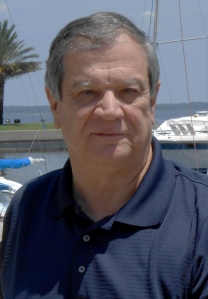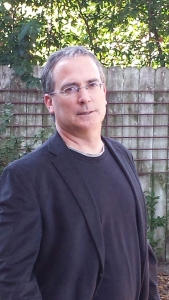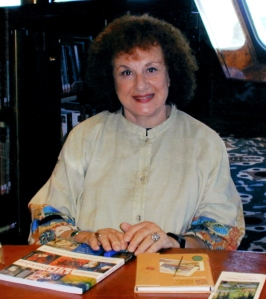Review by Philip K. Jason
Pillar of Fire: A Biography of Rabbi Stephen S. Wise, by A. James Rudin. Texas Tech University Press. 416 pages. Trade paperback $39.95.
Through the first half of the twentieth century, no one dominated the American Jewish cultural landscape like Rabbi Stephen S. Wise. Another rabbi with a distinguished career, A. James Rudin, has taken it upon himself to explain this phenomenon. He does so with abundant energy, exquisite detail, and a balanced view of his controversial subject. 
Hungarian-born Wise (the family name originally spelled differently) was a rabbi’s son and something of a prodigy. His family moved to the United States when he was very young, imbued with the spirit of the European Jewish Haskalah (enlightenment movement), a spirit that informed young Stephen and sent him into the orbit of Reform Judaism in the United States. However, it was an uneasy fit. Though allied broadly with a liberal Jewish orientation, Wise attained his rabbinic ordination at a yeshiva in Vienna. He added to this a doctorate from Columbia University, where he had already earned his bachelor’s degree.
Handsome, strongminded, and with a powerful and engaging voice, as well as sterling oratorical skills, Rabbi Stephen (as Rudin frequently calls him) was soon recognized as a committed leader. His twin passions were social/political action and Zionism. Reform Judaism’s negative stance toward Zionism (which was eventually reversed) was the main factor in Wise’s need to build his own brand of liberal Judaism. For himself he sought influential pulpits and institutional roles that would allow him to make a difference in U. S social policy, in Jewish life, and in a future for the Jewish people in its own land.
Author Rudin meticulously takes us through the stepping stones of Wise’s ascent to power and influence over several decades. And he does much more than this. In fact, an alternative title for Rabbi Rudin’s book could be “Stephen S. Wise in His Time.” Just about every major episode in Wise’s life is set into the larger context of national and international events in which he played a role or had a stake.
Whether it’s the drama of Wise’s initial meeting with Theodore Herzl at the second Zionist Congress in Basel in 1898; his support for Woodrow Wilson and for the president’s call for a League of Nations; two decades later, his work as founder and senior rabbi at New York’s Free Synagogue (which stressed freedom of the pulpit); his conflicts with the Reform establishment; his founding of the American Jewish Congress and later the World Jewish Congress; his founding of the Jewish Institute of Religion (a seminary in his own image); his fierce outrage against Henry Ford’s anti-Semitism; or his energetic support in 1928 for Al Smith for president, FDR for governor of New York, and Herbert Lehman for Lieutenant-Governor of New York, Rabbi Rudin elaborates the circumstances surrounding Wise’s role with abundant detail.
Some will say too much detail. And that’s just to get us through the 1920s.

A. James Rudin
As Rabbi Wise’s celebrity grew (and his acquaintanceships with other celebrities), so did the demands on his time. Writes author Rudin, “During his career of fifty-six years, Stephen exhibited a zest for all things religious and political. Because he broadly defined those terms, his enthusiasm allowed him to become involved in almost every aspect of American society. He was a human version of today’s 911 emergency number: if there was a crisis, conflict, confrontation, or controversy, individuals and groups contact Rabbi Stephen Wise for help.” Rabbi Rudin illustrates Wise’s responses by quoting from a wide range of letters.
The 1930s and early to mid-1940s were extremely busy, strenuous years for Rabbi Wise: the Great Depression, World War II and The Holocaust, and the effort to create the modern Jewish State occupied his time and drained his stamina. Though he remained a major force, he was no longer a young man.
The central thread of these years was Wise’s troubled relationship with Franklin Delano Roosevelt – a man whom he praised early and often, but whose decisions and behavior Wise often found disappointing. Social activist Wise applauded the New Deal, but the president’s lack of leadership in blunting the growing horror of The Holocaust was more than merely perplexing. Rabbi Rudin’s nuanced treatment of the many interactions between these two giant figures is one of the book’s most engaging achievements.
Rabbi Rudin does not neglect to explore Stephen Wise the private citizen: the son, the husband, the father, the friend. However, in some ways the fellow who would inevitably receive any letter addressed to “Rabbi USA” remains a mystery. It’s as if his private and inner life was subsumed into his outer life.
Rabbi Rudin is aware of his subject’s faults, and doesn’t hesitate to reveal them. However, he doesn’t dwell on them. Rather, he keeps them in the perspective of Wise’s accomplishments. This biography is a splendid achievement both as a work of scholarship and as a piece of story-telling.
This review appears in the April 2016 issues of Federation Star (Jewish Federation of Collier County), L’Chayim (Jewish Federation of Lee and Charlotte Counties), and The Jewish News (Jewish Federation of Sarasota/Manatee).




















 At once career memoir and analysis of recent Middle East history, Richard Engel’s new book, And Then All Hell Broke Loose, is an unexpected, suspenseful page-turner. It is the story of a young, enthusiastic journalist’s coming of age as a premier foreign (read “war”) correspondent. Fresh out of Stanford, and at first without employment, Engel plunked himself down in the major trouble spots of the Arab world, beginning in Cairo in 1993.
At once career memoir and analysis of recent Middle East history, Richard Engel’s new book, And Then All Hell Broke Loose, is an unexpected, suspenseful page-turner. It is the story of a young, enthusiastic journalist’s coming of age as a premier foreign (read “war”) correspondent. Fresh out of Stanford, and at first without employment, Engel plunked himself down in the major trouble spots of the Arab world, beginning in Cairo in 1993.